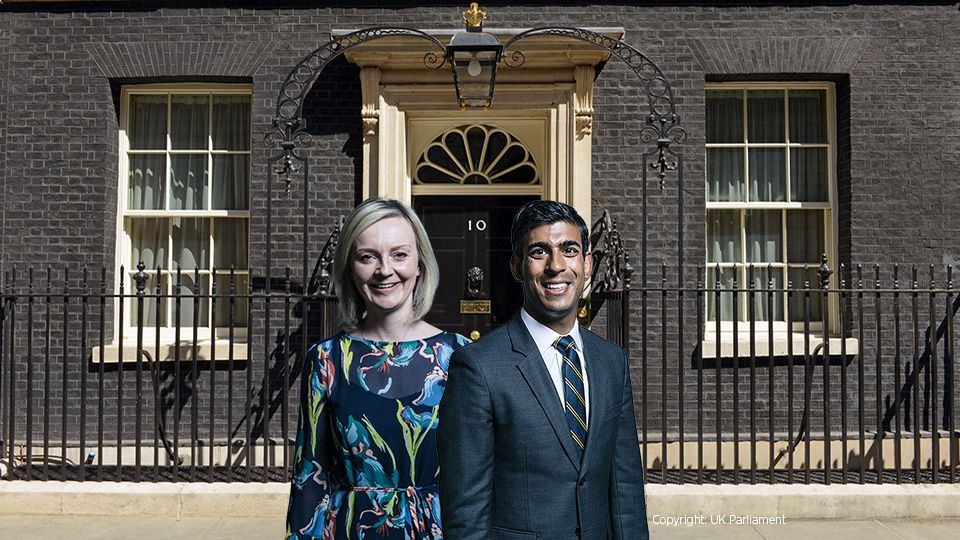A recent poll showed 60% of Conservative party members want the UK’s net-zero targets watered down or delayed, but investment groups are warning party leadership hopefuls that pandering to this group is risking serious damage to investor confidence in decarbonisation.
While candidates Rishi Sunak and Liz Truss have both officially said they support the existing target for the UK to have net-zero carbon emissions by 2050, David Osfield, fund manager at Edentree Investment Management said it seems the politicians are also in line with a recent trend to criticise so-called “woke capitalism”. He pointed out despite this, we still need clear messages for net zero.
“We need to have really clear, supportive, long-term constructed legislation to drive this positive environment for net zero because chopping and changing the incentives around that makes it deeply confusing for companies who allocate capital beyond the quarter, beyond the year even beyond the political cycle.”
Osfield noted when Donald Trump was president in the US there was a rolling back in the country’s commitments to climate-positive capex – now being remedied with a potential investment boom. But it’s the steady progress that will win the fight on climate change, he said, not the myopic approach we are seeing.
UK Sustainable Investment and Finance Association (UKSIF) CEO, and ESG Clarity Committee member, James Alexander, said the recent talk from the leadership candidates suggests they may be “going soft” on net zero, which will make it harder for asset managers to play their part in the green transition.
“We have to continue to make sure from a fund management perspective… that they remain confident to be investing in the new technology we’re going to need. So, the more risky investments as well as continuing to create and develop products and funds advancing net zero as a key fund objective,” said Alexander.
Buoying news from the US
However, Edward Baker, senior advisor, energy and low-carbon transition at Principles for Responsible Investment, does not think the discussions and polling linked to the Tory leadership race will have any major impact on investor confidence in net zero and wider decarbonisation efforts. From what he can see, investors have been more carefully watching events in high-emitting countries like the US. In particular, investors have been paying attention to the Inflation Reduction Act in the US – including its commitments to long-term spending on climate – which was signed into law last week.
Jupiter Green Investment Trust portfolio manager, Jon Wallace, described the bill as a “runway” for businesses providing environmental solutions. He commented it has already buoyed performance of the trust since early June when the bill looked more certain to get through Congress.
Baker said: “[The bill] shows net zero has more policy strength than some have been suggesting. And also [shows] why it’s less likely we’re going to see regression, at least not major regression, in the UK.”
Getting past culture wars
He acknowledged net zero is being drawn into the culture wars but despite how combative that can make the debate, there is too much support for progress on the environment from within the Conservative party and the media for there to be any major changes in policy now.
Baker cited a recent op-ed in The Times that said if the Tories turn their back on Thatcher (who had a brief ‘green period’) and climate change, it’ll be “electoral suicide”.
Much of the fiery “culture wars” discussion on net zero centres on the cost of getting there and how that could negatively impact individuals.
In terms of getting past this, the UK could learn something from how the US has managed to link environmental measures to inflation reduction, according to Wallace.
“The fact the US climate bill is called the Inflation Reduction Act, [shows] the penny has dropped that it’s better to make clearer the long-term benefits – in terms of reducing inflation – that can come from a more meaningful, quicker rollout of clean energy.
“We have a period now to reflect in the UK on previous policy decisions that have, say, undermined things like energy efficiency in households that would have been saving households hundreds and hundreds of pounds every year, if not more,” said Wallace.
Out of step with the electorate
One thing UKSIF’s Alexander encouraged the Tory leadership rivals to reflect on was how soon and how quickly whoever wins is going to be addressing the UK public on net zero again, not just the party members.
“It’s really important to recognise the country that they hope to lead is not solely made up of Conservative party members. It is made up of people who really care deeply about these issues and want to see, and expect to see, their government meeting this challenge to address this enormous climate crisis that we face,” he commented.
Another YouGov poll from this month with a similar sample size did indeed show views on net zero from the wider public are much more supportive than those of Tory members, with 27% stating the next prime minister should relax or delay net-zero targets, compared with the Tory poll’s 60%.
Baker is hopeful the next leader will be quick to see the benefits of implementing net-zero policies due to their potential to get inflation under control and get the economy growing again.
“Hopefully… once the election phase is over and they’re straight into the governing phase, people will get serious about what’s needed,” he said.








